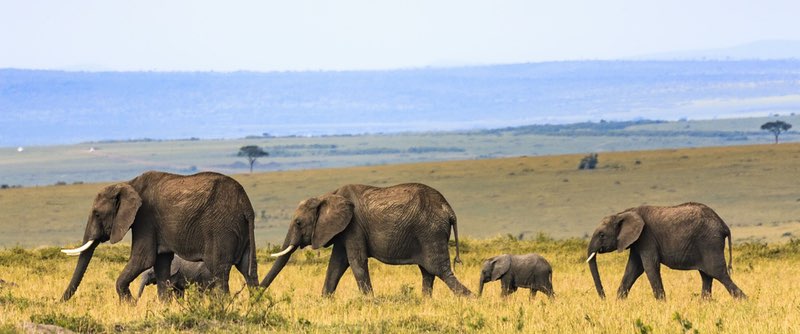Image courtesy Larry Li on Unsplash
In 2012, oncologist Joshua Schiffman of the Huntsman Cancer Center encountered an elephant that would change his life. He had taken his children to the Hogle zoo in Salt Lake City, Utah. They had recently lost their Bernese Mountain dog to cancer at age ten. Schiffman was astonished to learn from their tour guide that elephants, with one thousand times the mass of their dog, and seven times longer life span, and rarely, if ever, get cancer. So began his journey with one of God’s great creatures.
During cell division, DNA creates a copy of itself, so each new cell has its own DNA. Errors are inevitable when duplicating string of six billion molecules, in exact order, in thirty minutes. Humans have two copies of a p53 protein in each cell to repair the defective spots in the new DNA. They are not up to the task. A few mutated cells sneak by in each generation. As more errors accumulate, some cells will grow into cancers.
In comparison, the elephant has trillions of more cells than us, yet none become cancers. The elephant has forty copies of p53 protein per cell. They detect every mutation in the new DNA. The elephant p53 kills the defective cell on the spot.
Over several years, Schiffman created a synthetic p53 protein and injected it into human breast, bone, and lung cancer cells. When the cells tried to divide, they died abruptly. When asked for his perspective on a cancer cure, he said, “I think we’re on the way and I think the elephants are going to lead us there.” (Salt Lake Tribune)
None of an elephant's trillions of cells become cancers. The elephant has forty copies of p53 repair protein per cell, compared to humans' two. Share on XSaving the Elephants
The blood sample Schiffman used to create his p53 came from Zuri, an Asian elephant formerly with the Ringling Brothers Circus. There are only 45,000 Asian elephants. One-third are in captivity and do not breed. The remaining herds are declining. Without an increase in birth rates or an influx of wild elephants, naturalists predict the Asian elephant populations will become non-viable within 50 years.
In Africa, there were twenty-six million elephants in 1800. Ivory poaching has reduced herds to less than 400,000 elephants today. The pressure of two centuries of poaching has obliterated fifty-six million years of expansion. Elephants are intelligent; they know poachers are killing members of their herd. Like humans in wars and famines, fertility rates among elephants have plummeted.
Two percent of female elephants do not develop tusks. Poachers ignore these elephants. Relentless poaching has shifted the gene pool so that tuskless females now compose twenty-five percent of herds. Unfortunately, the recessive gene that prevents female teeth from growing into tusks also predisposes to fewer male births. The ratio of females to males fifty years ago was 2:1. It has recently passed 4:1. With more tuskless females, and fewer male births, the prospects for the remaining males, as well as the survival of the species, is grim.
Poaching and habitat encroachment are the main threats to the elephant’s future. Elephant Aware in Kenya has pioneered a solution applicable to both challenges.
Human-elephant conflicts occur when roaming elephants meet cattle herders and their herds, or encounter villages and people. Traditional elephant migration routes become obstructed by fences near newly built roads or borders of Maasai territories. EA works with local government to preserve existing elephant corridors in their plans for development.
Elephant Aware rangers work to educate community members about appropriate behavior in encounters with elephants as well as how to co-exist peacefully with wildlife. The rangers hold information sessions in villages, at community meetings and schools.
Elephant Aware advocates a trusting relationship with the resident Maasai, based on mutual respect earned over many decades. The result is EA rangers are called by villagers when they encounter poachers or injured animals. Poachers rarely get close to the elephants; EA elephant census is rising. However, on a worldwide basis, the momentum towards extinction is accelerating.
What You Can Do
A good first step would be to join the 3rdAnnual Boston 5K Run/Walk for Elephants at the Chestnut Hill Reservoir on Sunday, November 14 at 10:00 A.M. Come for fun, exercise, and camaraderie! There will be refreshments and prizes. Free parking and restrooms can be found at the Reilly Memorial Rink at 355 Chestnut Hill Ave.
Register at https://racewire.com/register.php?id=12313
If you can’t make the race, please consider supporting the elephants at
https://racewire.com/fundraiser.php?id=442784&npoid=1121
Any size donation is welcome and all proceeds go to support the Elephant Aware Conservancy in Kenya.
Visit our website at https://elephantawareusa.org/ to learn about elephant preservation and enjoy stories and photos of these wonderful creatures.

